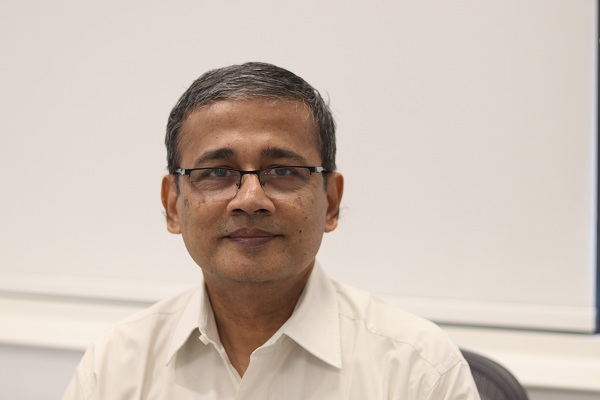
Muscat: In the month of September, which is also the Gynaecological Cancer Awareness Month, an awareness campaign has been launched to make women and the community in general aware about the various types of cancers that afflict the reproductive organs of women, the ways to detect them in their early stages, their signs and symptoms and the support available to those who have been diagnosed with the disease at the medical centres in the Sultanate. The drive includes awareness walk, webinar, lectures and radio talk.
“Gynaecological cancers are tumours in the vulva, vagina, cervix, uterus, tubes, ovaries and placenta. In 2019, there were 1,158 Omani females with some sort of cancer, including 132 suffering from gynaecological cancer, according to Oman national registry,” Professor Abraham Peedicayil, Senior Consultant in Gynaecology Oncology at Sultan Qaboos Comprehensive Cancer Care & Research Centre (SQCCCRC), said.
“Awareness of cancer and the preventive measures that are available will go a long way in improving the health of women as most cancers can be easily treated and cured when detected early,” he added.
“All cancer treatments require a multidisciplinary team of surgeons, medical oncologists, radiation oncologists, oncology nurses, counsellors, physiotherapists, nutritionists, radiologists and other allied health professionals. Cancer treatment should be centralised in special cancer hospitals and not managed at low-volume hospitals,” he further said.
“The fight against cancer has to be undertaken by individuals who understand the risks and the symptoms of the disease. This awareness will ensure that cancers are prevented, or at least detected early, so that treatment outcomes are positive, Prof Abraham said, adding that “the human papillomavirus (HPV) vaccine can prevent anogenital cancers and other HPV related lesions. The vaccine is better among boys and girls in the early teenage years. Early detection involves regular gynaecologic check-ups and screening tests.”
Vulvar cancer can be an ulcer or growth in the external genitalia. The risk factors for this are human papilloma virus infection, history of genital warts, chronic skin lesions and increasing age. The common symptoms are vulval itching, thickening of the vulval skin, a protuberance or ulcer of the vulva. A gynaecologist can detect vulval precancer and treat it effectively.
Vaginal cancers are rare and may be due to HPV infection or excessive hormonal (diethylstilbestrol) exposure in utero. These can be prevented by the HPV vaccine or detected early through gynaecological examination.
Cervical cancers are invariably caused by HPV infection. He said: “The usual presentation is a malodourous vaginal discharge, vaginal bleeding between menses after coitus as well as abnormal perimenopausal bleeding. Those who do not have regular gynaecological check-ups and Pap smears are at increased risk of advanced cancer,” he said.
“Uterine cancers can occur commonly in the lining (endometrium) or less commonly in the wall (sarcoma). Obesity is a risk factor for endometrial cancer while exposure to radiation is a risk factor for sarcoma. Although there is no screening test for these cancers, prompt consultation with a gynaecologist for abnormal uterine bleeding or discharge, especially after menopause, can result in early diagnosis in stage I itself,” Professor Abraham added.
There are various types of cancers of the ovary and fallopian tubes. Some are due to genetic factors while others are seen in women who do not have children. These usually present themselves with distension of the abdomen, loss of appetite, loss of weight or early satiety. Again, there is no good screening test, so, regular check-ups and gynaecological tests for even minor health problems is very important.
He pointed out that “if many members of the family have cancers at a young age, there is likely to be a genetic mutation that predisposes them to cancer. Women who have family members with breast, ovarian, uterine or colorectal cancers have to be vigilant. Such women should go for genetic counselling, special investigations like testing for tumour markers and imaging. If a significant mutation is found, women should consider risk-reducing measures such as weight reduction, regular exercise, balanced diet with antioxidants, screening and prophylactic removal of uterus and ovaries after completing their family.”
In Oman there are about 2,300 new cases of cancer each year of which 2,100 are among Omanis and 200 among expatriates.
“Being well informed about the risks of developing cancer and early symptoms will empower women to protect themselves. A stitch in time saves nine. Prevention is better than cure which is often costly, time consuming, tedious and may have complications. There are cancer centres at the Royal Hospital and the Sultan Qaboos Comprehensive Cancer Care & Research Centre in Muscat. If there are any concerns about cancer you can ask your local doctor or contact the Women’s Health Programme at SQCCC & RC. This month we have planned an awareness walk, webinar, lectures and a radio talk. We hope cancers are prevented or at least detected in the very first stage,” Prof Abraham said.